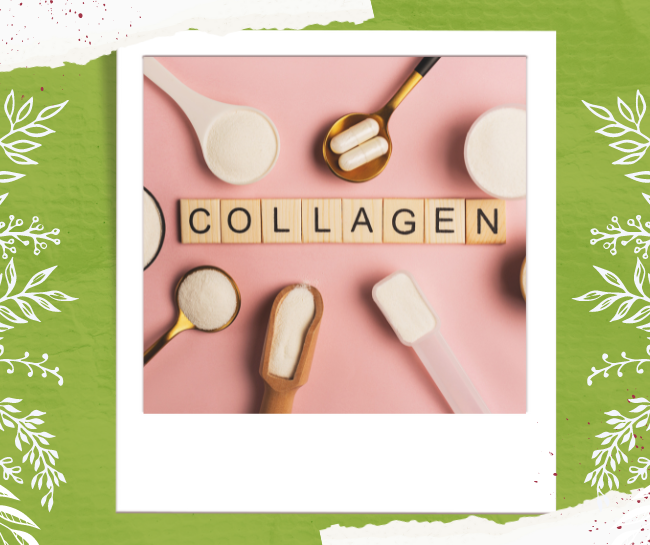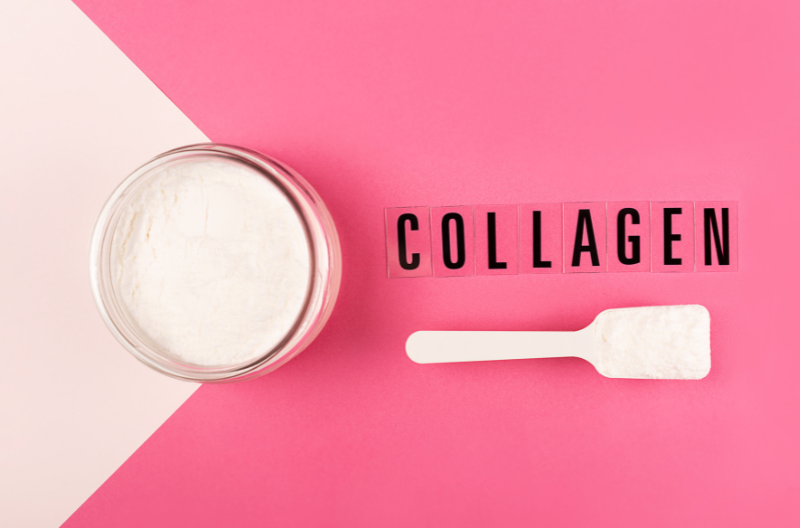Collagen supplements have become increasingly popular in recent years as a way to improve skin health and reduce the signs of aging. But, with any supplement, it’s important to consider the potential side effects. One question that many people have is whether collagen supplements can cause acne. In this blog post, we’ll explore the research on the link between collagen supplements and acne, as well as other possible causes of acne and alternative options for increasing collagen levels in the body.
What is Collagen and How is it Used in Supplements

Collagen is a protein that is found in the skin, bones, muscles, and other connective tissues in the body. It plays a key role in maintaining the structure and strength of these tissues, and is responsible for the skin’s elasticity and firmness. As we age, our bodies produce less collagen, which can lead to wrinkles, fine lines, and other signs of aging.
Collagen supplements are designed to help increase collagen levels in the body and improve skin health. They are available in a variety of forms, including capsules, powders, and liquids.
The Link Between Collagen Supplements and Acne: What Does the Research Say?

There is currently limited research on the link between collagen supplements and acne. One study found that collagen supplements may increase the production of sebum, which is an oily substance that can clog pores and lead to acne. However, this study was conducted on animals and more research is needed to confirm these findings in humans. Additionally, it’s important to note that there are many other potential causes of acne, such as hormones, genetics, and diet.
Other Possible Causes of Acne: It’s Not Just Collagen

While collagen supplements may be a possible cause of acne for some people, there are many other factors that can contribute to the development of acne.
- Hormones:
Hormonal changes, such as those that occur during adolescence, pregnancy, or menopause, can increase the production of sebum and lead to acne.
- Genetics:
Some people are more prone to developing acne than others due to genetic factors.
- Diet:
Certain foods, such as sugar, dairy, and processed foods, have been linked to an increase in acne.
- Stress:
High levels of stress can trigger the release of hormones that can lead to acne.
- Medications:
Certain medications, such as steroids and birth control pills, can increase the risk of developing acne.
- Skincare products:
Using skincare products that are too harsh or not suited for your skin type can lead to acne.
- Climate:
Humid and warm climates can increase the risk of developing acne.
- Bacteria:
Propionibacterium acnes is a type of bacteria that lives on the skin and can lead to acne.
- Dead skin cells:
If dead skin cells are not properly exfoliated, they can clog pores and lead to acne.
- Cosmetics:
Using makeup and other cosmetics that are not non-comedogenic can lead to clogged pores and acne.
💡 Acne is often thought to be caused solely by a lack of collagen, however, there are many other factors at play such as hormonal imbalances, genetics, and diet. It’s important to remember that clear skin is not just about collagen, but a combination of various internal and external factors.

It’s important to remember that acne is a complex condition that can be caused by a variety of factors. While collagen supplements may be a possible cause for some people, it’s important to consider other possible causes and to work with a healthcare professional to determine the underlying cause of your acne. By identifying and addressing the underlying cause, you can take steps to improve your overall skin health and reduce the risk of developing acne.
Alternative Options for Increasing Collagen Levels in the Body

If you’re concerned about the potential link between collagen supplements and acne, there are other options for increasing collagen levels in the body. Eating a diet that is rich in foods that promote collagen production, such as leafy greens, berries, and fish can help to increase collagen levels in the body. Additionally, using skincare products that contain collagen-boosting ingredients, such as retinoids, can also help to improve skin health.
💡 Alternative options such as dietary changes, topical products, and treatments can boost collagen levels and improve overall health.
Conclusion and Recommendations for Those Taking or Considering Collagen Supplements

While there is currently limited research on the link between collagen supplements and acne, it’s important to be aware of the potential side effects of any supplement. If you’re currently taking collagen supplements and experiencing acne, it may be worth speaking with a dermatologist or healthcare professional to determine the cause of your acne and explore other options for improving skin health.
Additionally, if you’re considering taking collagen supplements, it’s important to speak with a healthcare professional before starting to take them, to ensure that they are safe for you.
In conclusion, Collagen supplements can have many benefits for skin health, but it’s important to be aware of the potential side effects and to speak with a healthcare professional before starting to take them. While there is limited research on the link between collagen supplements and acne, it’s possible that they may contribute to the development of acne in some people. Eating a diet that promotes collagen production and using skincare products that contain collagen-boosting ingredients are alternative options to consider. Additionally, it’s important to keep in mind that there are many other possible causes of acne, such as hormones, genetics, and diet. By identifying and addressing these underlying causes, you can improve your overall skin health and reduce the risk of developing acne.
Want to know the best vitamins for clear, acne-free skin? Check out our article, “The Top Vitamin A Supplements for Clear, Acne-Free Skin” and discover the top supplements that can help you achieve the clear complexion you desire.

